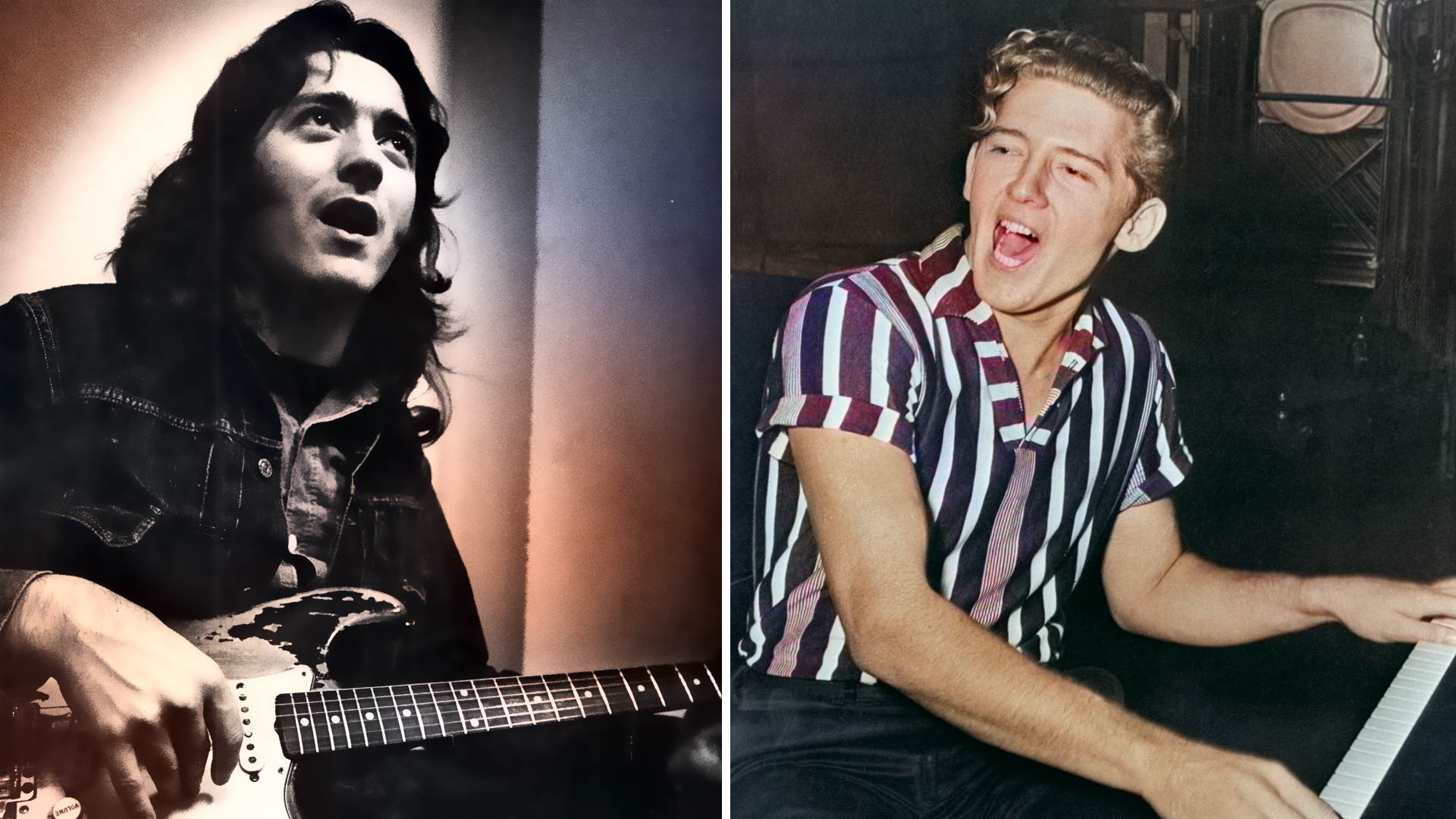“It Was Just Like an Atomic Bomb Going Off”: Elvis Presley Guitarist Scotty Moore Recounts the Birth of Rock ‘n’ Roll
The pioneering guitar player reveals the seminal moments of his groundbreaking career in this incredible interview from the GP archives.
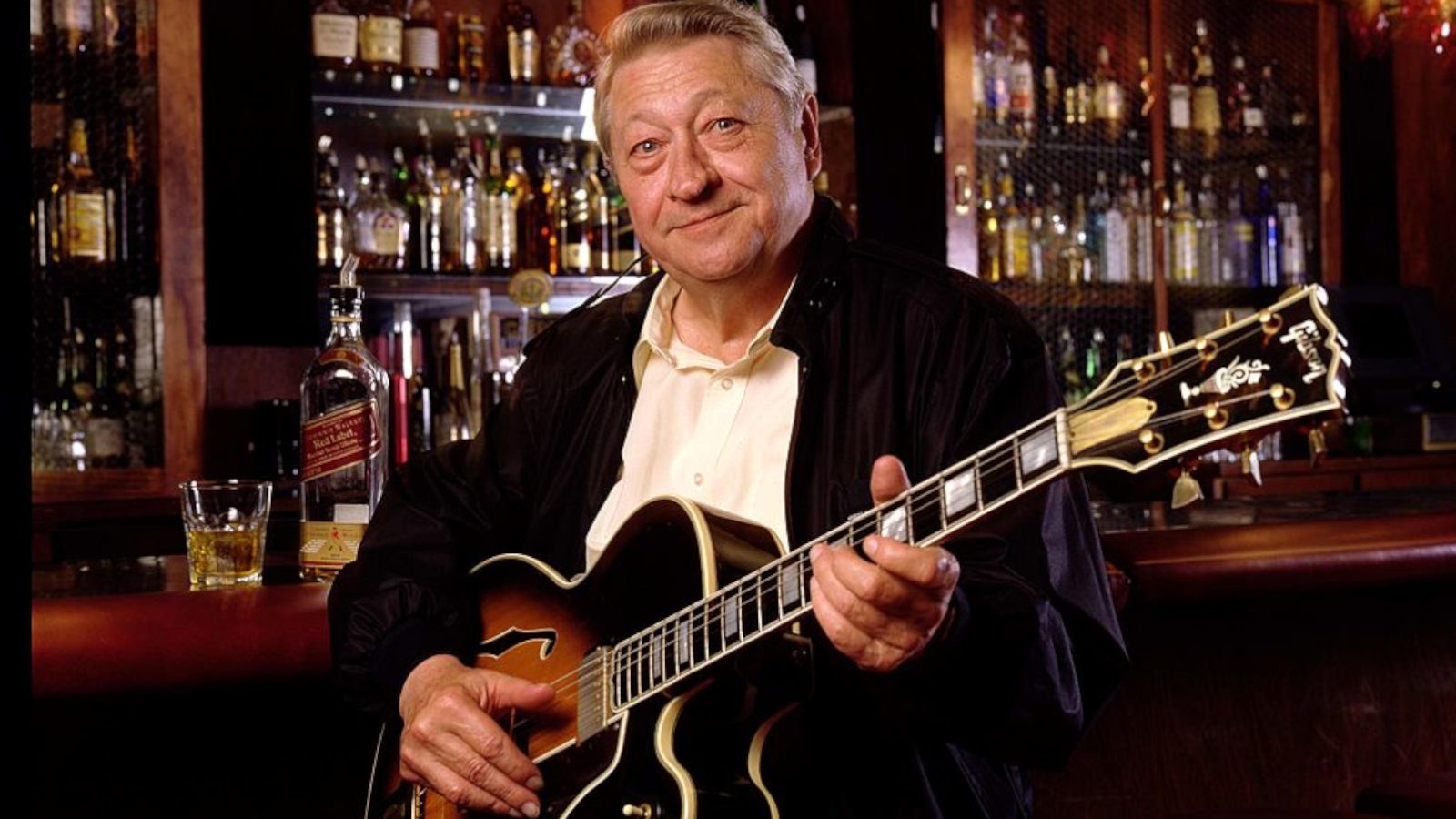
Long before there was rock ‘n’ roll, Scotty Moore (1931-2016) was a rock ‘n’ roll guitar player.
As Elvis Presley's first guitarist, every note the young man played – including such groundbreaking classics as "Hound Dog,“ "Don't Be Cruel“ and “Heartbreak Hotel" – was memorized by countless budding guitar players (many of whom have gone on to become legends themselves.)
Moore was among the handful of musicians in the early ‘50s of whom it can be said, “They invented rock ‘n’ roll.“
The following interview extract originally appeared in the August 1974 issue of Guitar Player…
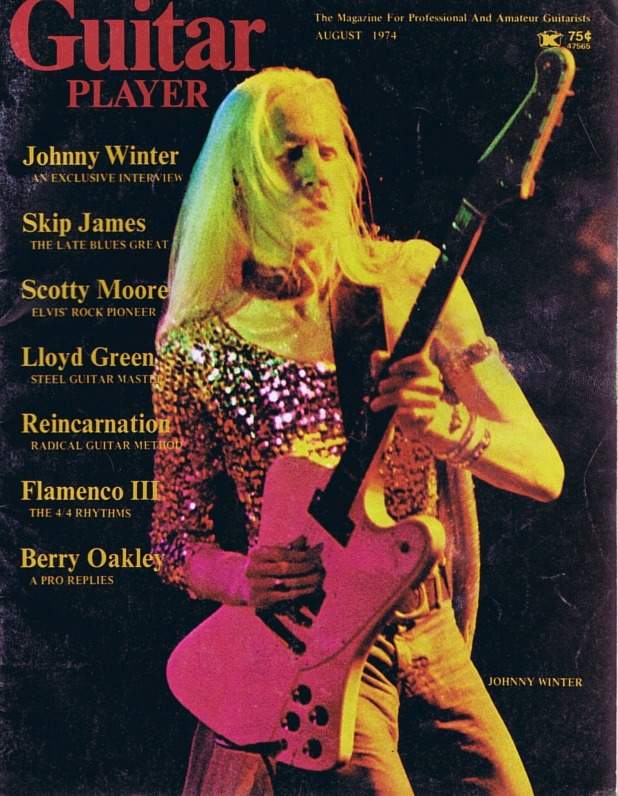
Tell us about your childhood and your early interest in music.
I was born in West Tennessee – Humboldt. My father and two brothers all played, so that's where my first interest came from. They mostly played the country songs of the time.
I was the youngest in the family, so by the time I was old enough to start playing, my brothers had left home, and my dad was too old to care anything about it anymore. So I didn’t pursue it very much until I got into the service and formed a couple of bands.
In my spare time I formed a band and met Sam Phillips
Scotty Moore
When I came out in '52, I went to Memphis to work for my brother who had a cleaning plant. And in my spare time I formed a band and met Sam Phillips [of Sun Records] and began getting into recording a bit.
Were you a studio musician with Sun?
Yes, I guess you could call it that. Sam had been into rhythm and blues before that, and with the band that I'd put together we started working on some country product.
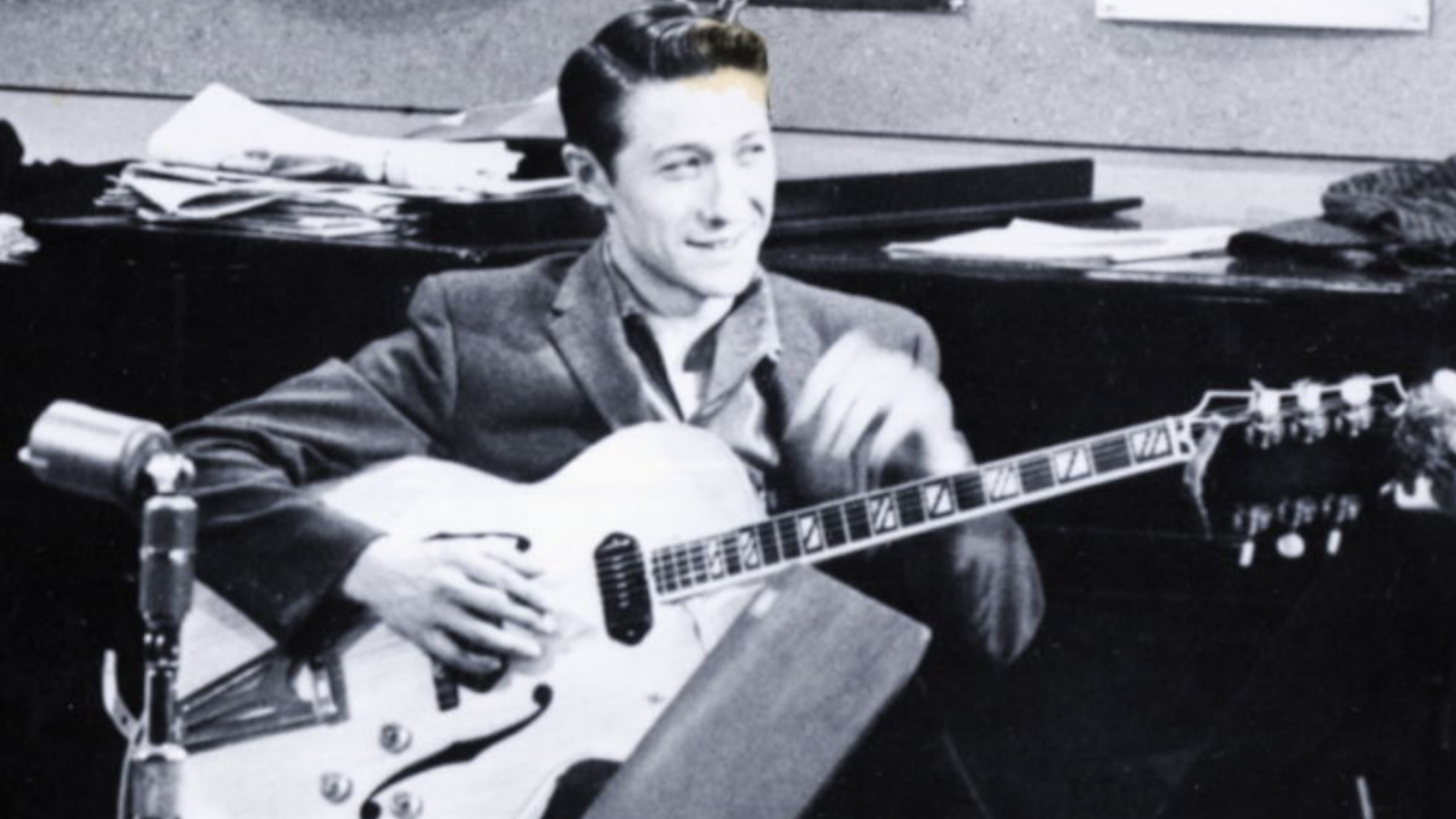
What was the name of the group?
The Starlight Wranglers! [laughs] Bill Black was the bass player. The singer's name was Doug Poindexter. We put one record out and were playing some of the clubs around Memphis.
Then along came Elvis.
Bill and myself auditioned with him. Sam also had a custom record service, and Elvis had been in a year before and made a record for his mother. Sam liked his voice, and kept his name on file.
Elvis came over to my house one Sunday afternoon. We sat around and played, and Elvis sang a little bit of everything – pop, country, R&B
Scotty Moore
At the time, the music business was at a very low ebb, and we were all looking for something that would sell. Sam had me get hold of Elvis, and so Elvis came over to my house one Sunday afternoon. We sat around and played, and Elvis sang a little bit of everything – pop, country, R&B.
So after that I called Sam and said, “Well, the guy sings good. He doesn't really knock me out, you know, but…"
So Sam says, “Let's go into the studio and see what he sounds like on tape." So that's what happened, and the first record came out of that first session.
What guitar were you playing at the time?
I had a Fender. I don’t remember if it was a Telecaster, a Broadcaster, a Lancaster – it was one of those 'casters, I do know that.
Then shortly after that I went to a Gibson, and I’ve been playing Gibsons ever since. I had a Les Paul model, made just like the small Les Pauls, but it had a bigger body.
An ES-295 with a gold top?
Sam says, “Let's go into the studio and see what he sounds like on tape"
Scotty Moore
I'm not sure of the number. I played it for about a year, then went to an L-5, then to a Super 400. I’ve been playing Super 400's ever since.
What was your amp back then?
It was a custom-built Echo-Sonic, made by Ray Butts. Chet Atkins had one, I can't think who had the second, and I had the third one built.
It had a tape, more like a slap-back effect – not the Echoplex we know of now with a repeater. But it just gave a little boost to the sound.
It was awful good if you missed a note. It wouldn't come out so bad. [laughs] I still have that same amp, but of course I also have two or three others.
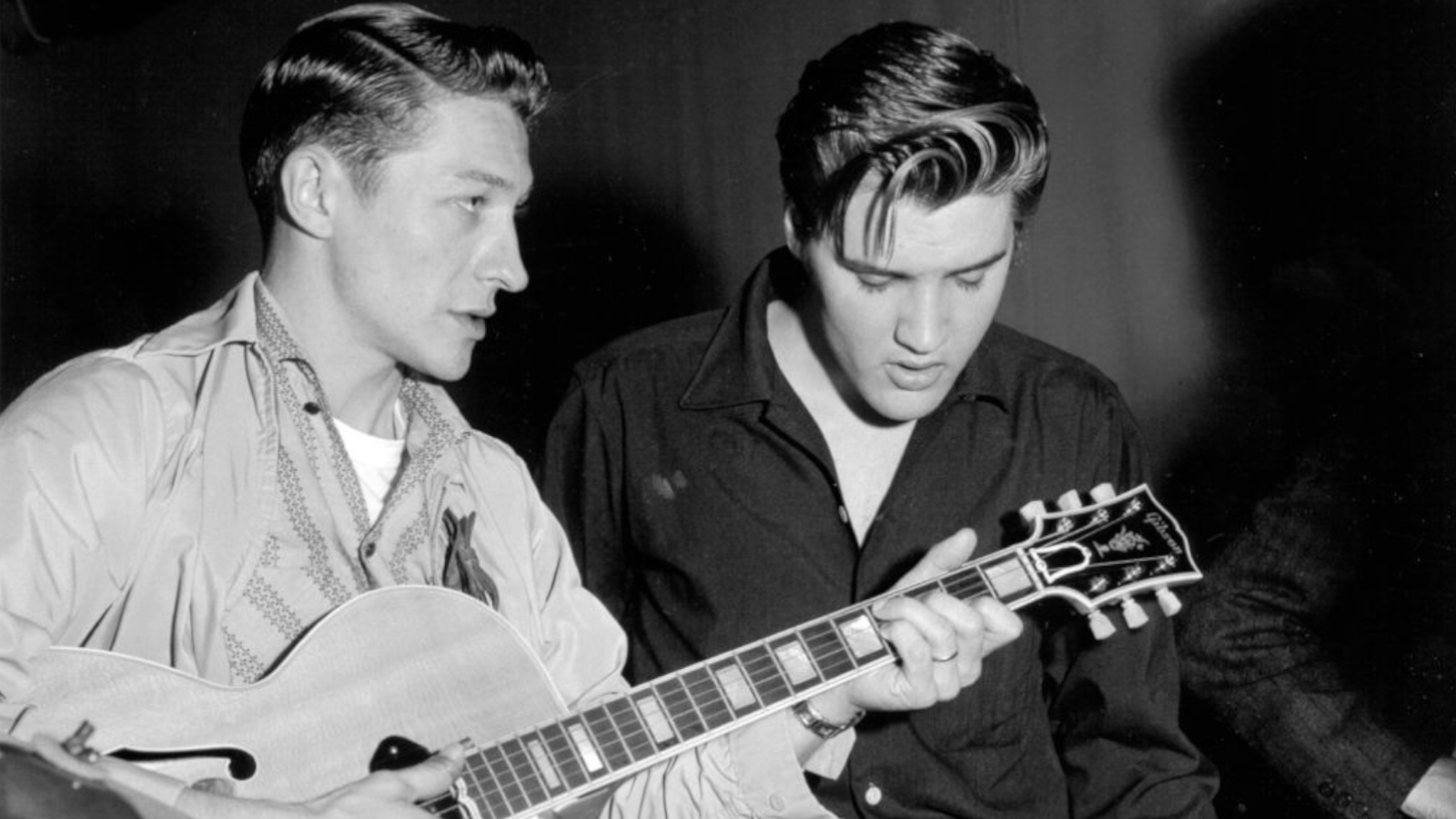
How did you get a rock ‘n’ roll sound out of a hollowbody?
That's hard to say, because there wasn't any rock ‘n’ roll before. So that was it! We couldn't get the highs or bend the strings as far as many players do now, because we didn‘t use light gauge. We just had to work harder.
The Gretsch Chet Atkins strings were the only ones that would hold up on that particular guitar.
On a couple of earlier guitars, I'd used different ones though. I still use the same Atkins strings now by today's standards they‘re like rope, they‘re so big.
There wasn't any rock ‘n’ roll before
Scotty Moore
So then what happened after the release of Elvis' first record?
The first one wasn't a nationwide thing. It was more in the Southwest: Mississippi, Arkansas, Texas...
We started doing some shows, and it was rough, it was wild. It wasn't an overnight success, by any means. But even in those early days the crowds were just as ecstatic as now, but not as large.
Then we went to the [Shreveport, Louisiana] Louisiana Hayride and worked with the other acts that were on it. And then we did the first show with Tommy and Jimmy Dorsey, and with that, coupled with the first record we did on RCA, "Heartbreak Hotel,“ it was just like an atomic bomb going off!
Nobody even had time to think after that. A phenomenon. really! And even being as close to it as I was, it's still hard for me to realize it.
I think I'm still getting shock waves out of it.
How long did you stay with Elvis?
Full-time until he went into the Army in '58. And again when he came out. Then he did movies more. Didn't do too many shows. We worked record sessions, movie soundtracks and such.
I worked with him up through the Singer [Presents… Elvis '68 Comeback Special] which was about three or four years ago.
Elvis was just an everyday guy – young and wild. Now he's old and wild!
Scotty Moore
At that time he was going to Vegas for the first time and wanted myself, D. J. [Fontana, drummer] and the Jordanaires to go with him. But it was going to be a six-week bit, and you know what it means to be out of town that long – it's like starting over.
Is that when James Burton joined Elvis?
Elvis needed a man to work with him who was loose enough to travel. And I don‘t think he could have found a better player! That's for sure!
James Burton is fantastic and, I might add, a personal friend for years. l knew him back when he was with Ricky Nelson.
James, Fred Carter Jr. (who's here in Nashville), and Ricky – we all used to get in the hotel, in California, and jam.
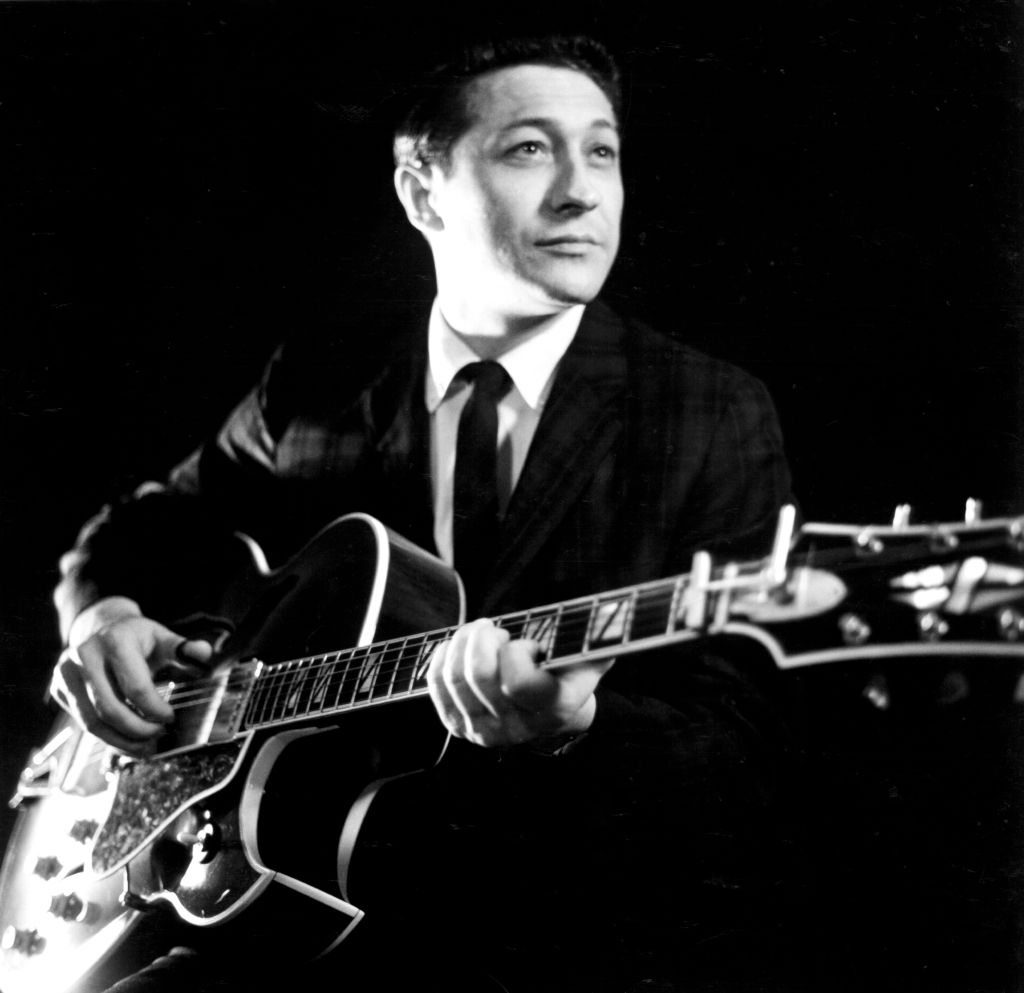
What was Elvis like in the beginning? Was he much of a player then?
Elvis was just an everyday guy – young and wild. Now he's old and wild!
He only played rhythm guitar, what I call self-accompaniment. He played a little piano, too. But he didn't consider himself a guitar player as such, but his playing did add to the group, because he played rhythm and more or less tied things together from the rhythm standpoint.
But singing was always his first concern.
The rhythm was the primary thing. Any lead work was really secondary
Scotty Moore
Did he have a shaping effect on the course the music was taking? Or did you, Bill and D. J. pretty much decide what that music was to be?
It was a combination of everybody. We'd stop and say, “Let's see if this’ll work." But for the most part I think you could say that once we'd get a rhythm pattern going that felt good with the way Elvis wanted to sing it, we'd work everything else in around that.
The rhythm was the primary thing. Any lead work was really secondary at that point.
In Jerry Hopkins’ book, Elvis, he hints strongly that you were the real reason for the Elvis sound, that it was your musicianship and your guitar playing that actually drove the group and created its sound.
Well, it's easy for another guy to say nice things about you.
He also suggests that you guys really got beat on the money end of it.
Ouch! That was a good lick… Sometimes you win, and sometimes you lose. I guess there are some things that should be put in writing.
How much did you get paid in those early days?
I think it was along about 250 dollars a week. Back then it was a good salary.
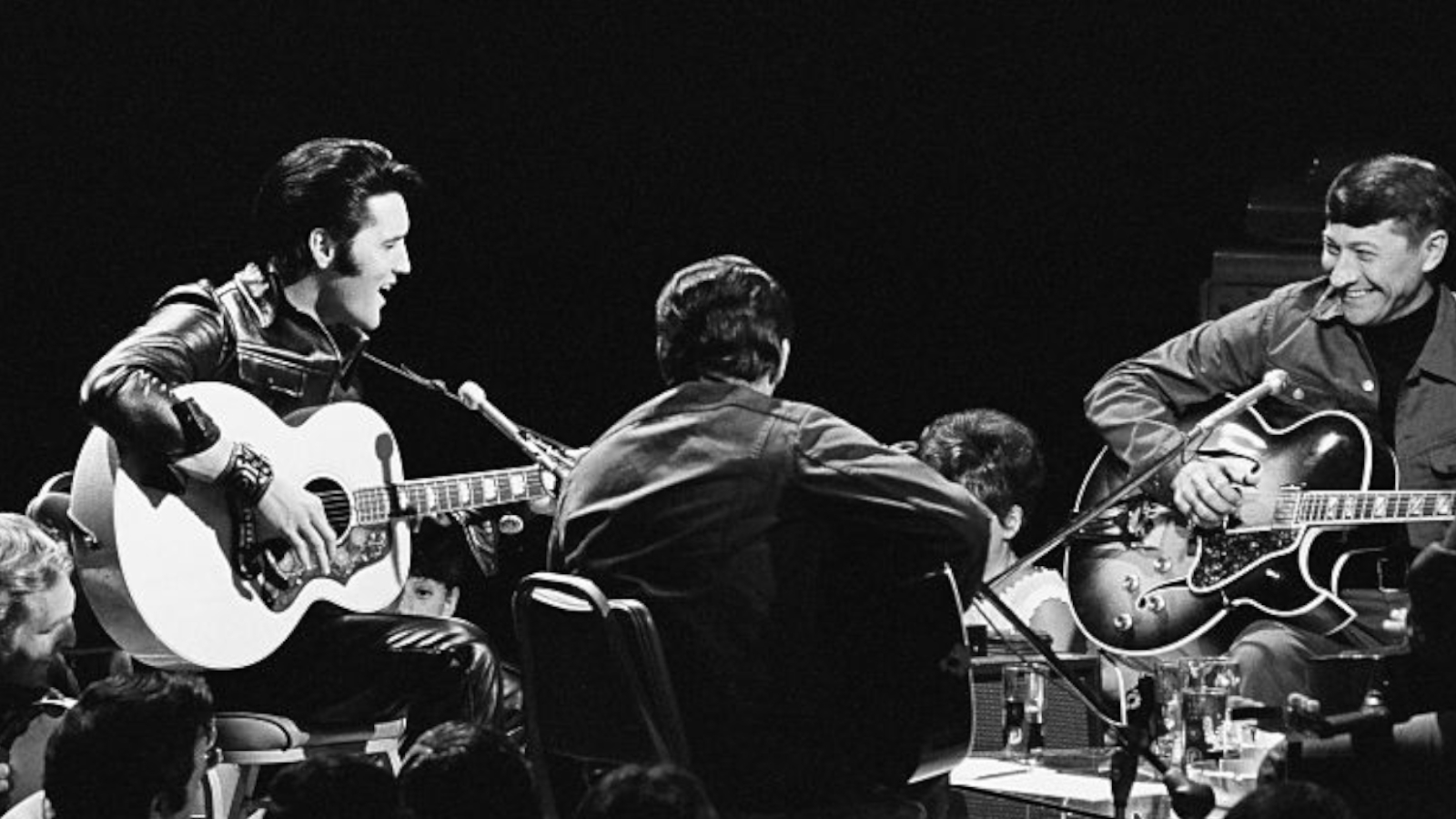
Was it strictly up to you to decide the guitar leads in those pre-rock days?
Yeah, basically. They were primarily my own invention, if you can use the word ‘invention.’
A lot was a combination of old blues guitar licks, some Travis, some Atkins, a combination of thumb and finger – just whatever I could make work, really.
I used a thumb pick mostly, then a straight pick on other styles.
Who did you learn from in those days? Who were your inspirations?
I don't think I really had any particular favorites. I was listening to Atkins, Travis, Barney Kessel, Tal Farlow, B.B. King.
I was just into everybody. As long as he played guitar, he was fine with me.
Browse the Elvis Presley catalog here.
Get The Pick Newsletter
All the latest guitar news, interviews, lessons, reviews, deals and more, direct to your inbox!
“I had just been turned on to Ravi Shankar, and I had an album in my suitcase. I gave it to George.” How David Crosby's casual recommendation changed George Harrison’s guitar playing forever
"Stevie always sounded the same whether it was rosewood or maple.” Jimmie Vaughan says Stevie Ray Vaughan would agree — there's no tone difference between rosewood and maple fretboards
